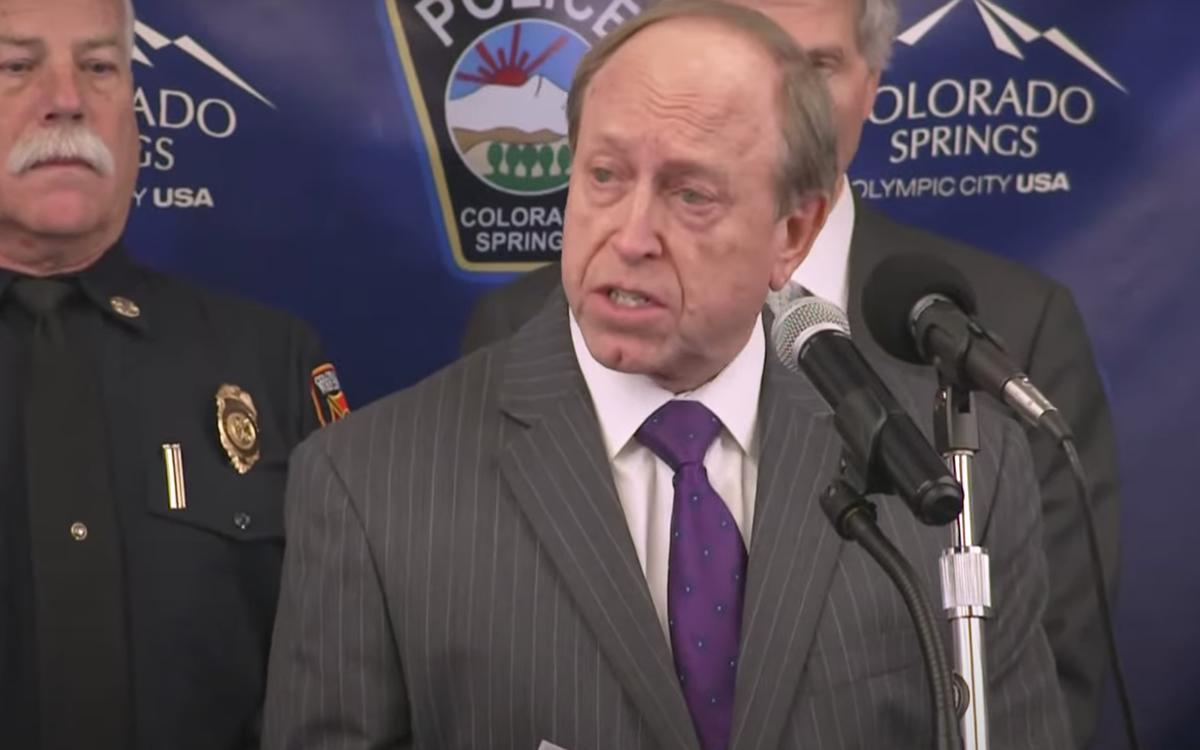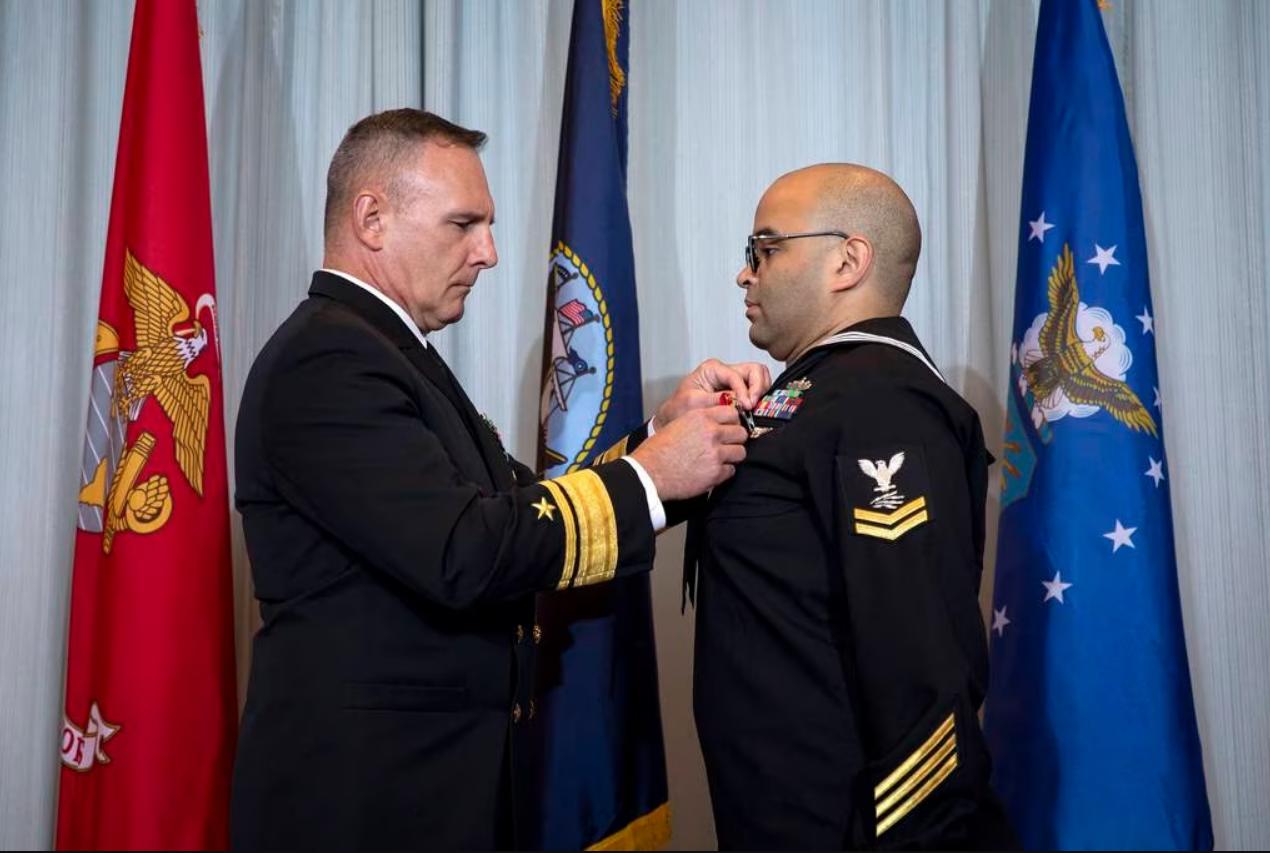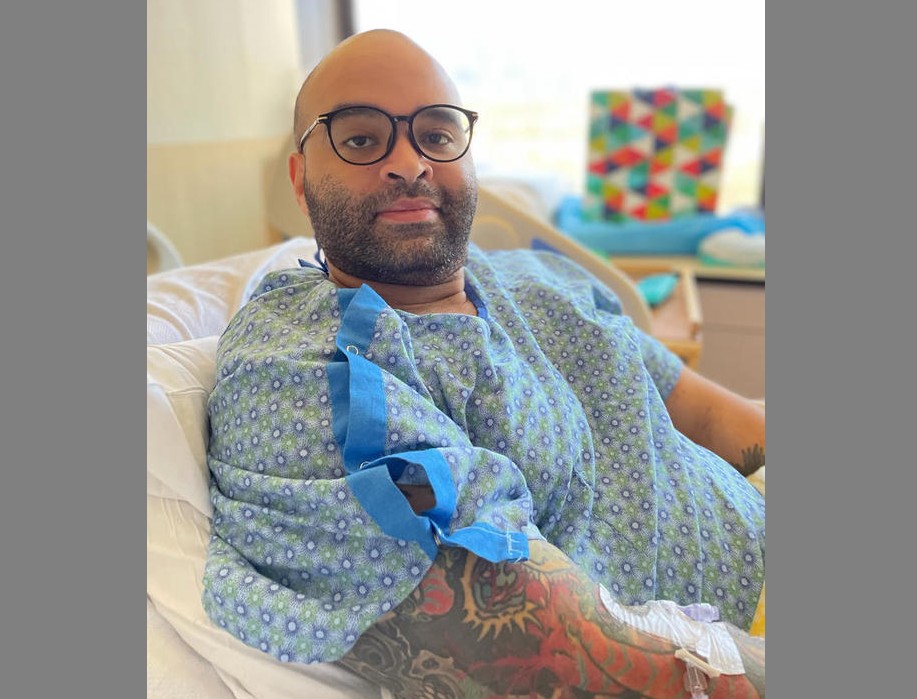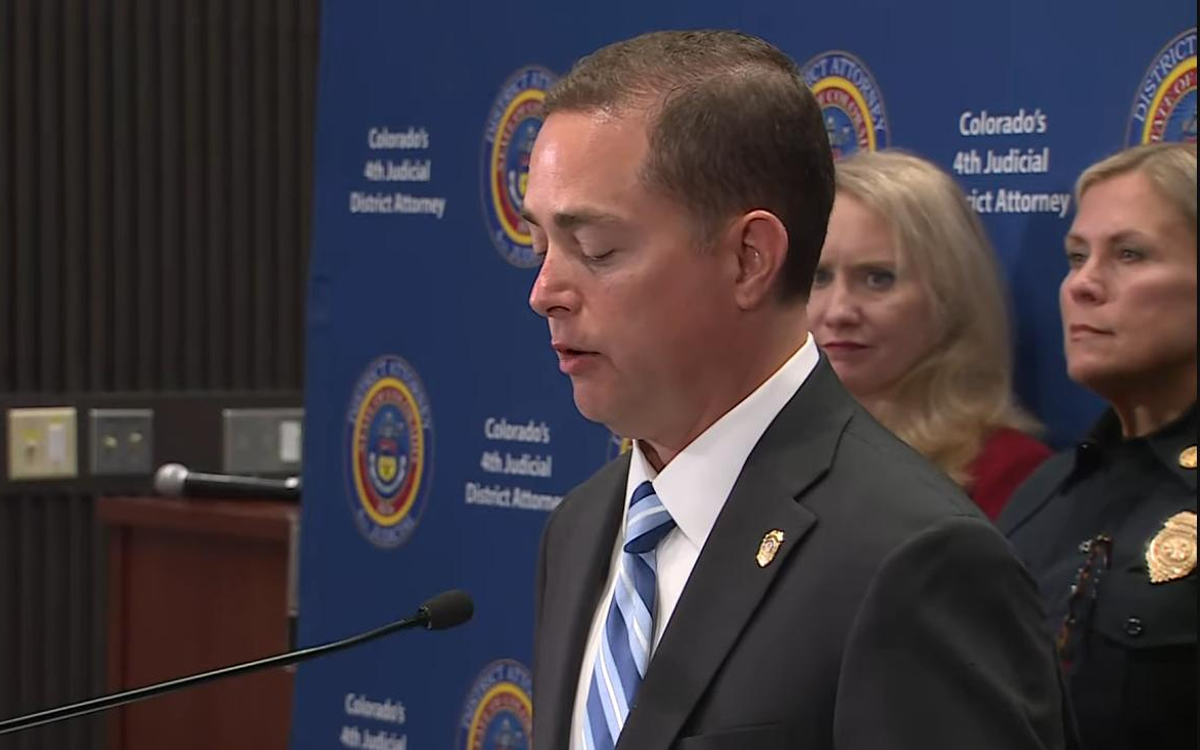Colorado
Colorado Springs mayor grateful for support, Biden offers assistance
President spoke with Colorado Gov. Jared Polis on Monday

In a late afternoon press briefing, law enforcement and the civic leadership of Colorado Springs spoke to reporters updating the investigation into the mass shooting at Club Q on Saturday.
Colorado Springs Mayor John Suthers, the state’s former attorney general, expressed his and officials’ gratitude for the outpouring of sympathy and offers of support from his city’s residents and the entire Pikes Peak region.
Aboard Air Force One en route to U.S. Marine Corps Air Station Cherry Point in North Carolina, White House Press Secretary Karine Jean-Pierre told reporters:
“Earlier this afternoon, President Biden had the opportunity to speak with Colorado Gov. Jared Polis following the deadly shooting in Colorado Springs over the weekend. The president extended his condolences and offered to provide support in any way that would be helpful.
He committed to continuing to press Congress for an assault weapons ban because thoughts and prayers are just not enough,” Jean-Pierre said.
Colorado
Five transgender, nonbinary ICE detainees allege mistreatment at Colo. detention center
Advocacy groups filed complaint with federal officials on April 9

Five transgender and nonbinary people who are in U.S. Immigration and Customs Enforcement custody at a privately-run detention center in Colorado say they continue to suffer mistreatment.
The Rocky Mountain Immigrant Advocacy Network, the National Immigration Project and the American Immigration Council on April 9 filed a complaint with the Department of Homeland Security’s Offices for Civil Rights and Civil Liberties, Immigration Detention Ombudsman and Inspector General and ICE’s Office of Professional Responsibility on behalf of the detainees at the Aurora Contract Detention Facility near Denver.
Charlotte, one of the five complainants, says she spends up to 23 hours a day in her room.
She says in the complaint that a psychiatrist has prescribed her medications for anxiety and depression, but “is in the dark about her actual diagnoses because they were not explained to her.” Myriah and Elsa allege they do not have regular access to hormones and other related health care.
Omar, who identifies as trans and nonbinary, in the complaint alleges they would “start hormone replacement therapy if they could be assured that they would not be placed in solitary confinement.” Other detainees in the complaint allege staff have also threatened to place them in isolation.
“They have been told repeatedly that, if they started therapy, they would be placed in ‘protective custody’ (solitary confinement) because the Aurora facility has no nonbinary or men’s transgender housing unit,” reads the complaint. “This is so, despite other trans men having been detained in Aurora in the past, so Omar is very likely receiving misinformation that is preventing them from accessing the treatment they require.”
Omar further alleges staffers told them upon their arrival that “they had to have a ‘boy part’ (meaning a penis) to be assigned to” the housing unit in which other trans people live. Other complainants say staff have also subjected them to degrading comments and other mistreatment because of their gender identity.
“Victoria, Charlotte and Myriah are all apprehensive about a specific female guard who is assigned to the housing unit for transgender women at Aurora,” reads the complaint. “Victoria has experienced this guard peering at her through the glass on the door of her form. Charlotte, Myriah and the other women in her dorm experienced the same guard making fun of them after they complained that she had confiscated all of their personal hygiene products, like their toothbrushes and toothpaste, and replaced them with menstrual pads and tampons, which she knows they do not need.”
“She said something to them like, ‘If you were real women, you would need these things,'” reads the complaint. “The same guard told them that they had to ask her for their personal hygiene products when they wanted to use them, stripping them of their most basic agency.”
Victoria, who has been in ICE custody for more than two years, also says she does not have regular access to hormones. Victoria further claims poor food, lack of access to exercise and stress and anxiety because of her prolonged detention has caused has made her health deteriorate.
The GEO Group, a Florida-based company, operates the Aurora Contract Detention Facility.
Advocates for years have complained about the conditions for trans and nonbinary people in ICE custody and have demanded the agency release all of them.
Roxsana Hernández, a trans Honduran woman with HIV, on May 25, 2018, died in ICE custody in New Mexico. Her family in 2020 sued the federal government and the five private companies who were responsible for her care.
Johana “Joa” Medina Leon, a trans Salvadoran woman, on June 1, 2019, passed away at a Texas hospital four days after her release from ICE custody. Kelly González Aguilar, a trans Honduran woman, had been in ICE custody for more than two years until her release from the Aurora Contract Detention Center on July 14, 2020.
ICE spokesperson Steve Kotecki on Friday told the Blade there were 10 “self-identified transgender detainees” at the Aurora Contract Detention Center on April 11. The facility’s “transgendered units” can accommodate up to 87 trans detainees.
A 2015 memorandum then-ICE Executive Associate Director of Enforcement and Removal Operations Thomas Homan signed requires personnel to allow trans detainees to identify themselves based on their gender identity on data forms. The directive, among other things, also contains guidelines for a “respectful, safe and secure environment” for trans detainees and requires detention facilities to provide them with access to hormone therapy and other trans-specific health care.
“U.S. Immigration and Customs Enforcement (ICE) is committed to ensuring that all those in its custody reside in safe, secure and humane environments,” said Kotecki. “ICE regularly reviews each case involving self-identified transgender noncitizens and determines on a case-by-case basis whether detention is warranted.”
The complaint, however, states this memo does not go far enough to protect trans and nonbinary detainees.
“ICE’s 2015 guidance has some significant flaws,” it reads. “It fails to provide meaningful remedies for policy violations. It does not acknowledge the challenges that nonbinary people face when imprisoned by ICE and the lack of such guidance explains why the needs of nonbinary people are largely misunderstood and unmet.”
“Further, the language used to describe people who are TNB is not inclusive and does not reflect terminology adopted by the community it is meant to describe,” adds the complaint. “Although this list is not exhaustive, it addresses some of the primary concerns voiced by the complaints.”
Colorado
US Navy officer given valor award for actions during Club Q shooting
Massacre at LGBTQ nightclub in Colo. took place last November

U.S. Navy Information Systems Technician Petty Officer Second Class Thomas James was awarded the Navy and Marine Corps Medal last week for his actions taken as one of the three persons who tackled and then disarmed the shooter in the LGBTQ Club Q nightclub mass shooting in Colorado Springs last November.
According to Colorado Springs Police Chief Adrian Vasquez at a press conference last year, James, U.S. Army veteran Rich Fierro and a transgender woman all joined in the courageous takedown, disarming the 22-year-old suspect and holding him until the arrival by responding Colorado Springs police officers.
James had grabbed the barrel of the weapon and restrained the gunman until the police arrived and took the assailant into custody, a Navy press release said.
He suffered a gunshot wound in his abdomen and burned his hands as a result of his actions. Still, he offered his seat in an ambulance to another injured person.
“I simply wanted to save the family I found,” James, originally from West Virginia, said in a statement in November 2022. “If I had my way, I would shield everyone I could from the nonsensical acts of hate in the world, but I am only one person.”
The shooter walked into Club Q late on Nov. 19, 2022, with multiple firearms and is accused of killing five people. At least 18 others were injured.

The Navy Times reported that Rear Adm. Scott Robertson, director of Plans, Policy and Strategy for North American Aerospace Defense Command and U.S. Northern Command, presented the award to James on Oct. 5 at Peterson Space Forces Base in Colorado Springs.
Robertson said ahead of the ceremony he asked James, who is assigned to the Defense Intelligence Agency, why he chose to act the way he did.
“He said, ‘I wanted to buy time for my friends. I wanted to protect my community,’” Robertson said at the ceremony, according to the Navy press release.
Robertson also said James’ actions caused him to reflect on how he himself would have responded if put in the same situation.
“I myself can only hope that I would channel the courage in our Navy core values like he did,” Admiral Robertson said at the ceremony. “But, we don’t have to wait for crisis to apply core values. We can and should apply them every day. That’s what I am taking away from the lessons you taught us all.”
The Navy and Marine Corps Medal is the highest noncombat award for heroism and typically is awarded to those who put their own life in jeopardy.
Colorado
Club Q shooter sentenced to life without possibility of parole
Gunman pleaded guilty before judge imposed sentence

In a press conference Monday after the final court hearing, El Paso County (Colo.) District Attorney Michael J. Allen announced that a plea deal had been reached with the shooter in last November’s mass shooting at the LGBTQ entertainment venue Club Q.
Colorado Fourth Judicial District Court Judge Michael McHenry accepted the plea deal worked out with Allen’s office where Anderson Lee Aldrich, 23, pleaded guilty to five counts of murder in the first degree, 46 counts of attempted murder in the first degree.
- Daniel Aston
- Kelly Loving
- Derrick Rump
- Ashley Paugh
- Raymond Vance
Which was followed by the statements on behalf of the other victims, survivors and families of survivors.
In addition to Allen, other officials including Colorado Springs Mayor Yemi Mobolade, Police Chief Adrian Vasquez, Deputy Fire Chief of Operations Jayme McConnellogue, former Colorado Springs Mayor John Suthers along with representatives of the FBI, sheriff’s office and others spoke to the gathered reporters, witnesses families and victims.
Vasquez noted that while the families of those killed will never get their loved ones back and survivors will never will forget their experience, Vasquez vowed “that we will never forget.” He then listed the five victims by name pivoting the highlight and praise the heroic acts that happened in the moments during and directly after the gunman was tackled and held down by other two other club goers, one of whom had been shot and seriously wounded.
The chief thanked the LGBTQ community for “their patience,” and he then introduced Mobolade.
Mobolade, a Nigerian American businessman and politician and the city’s first Black mayor, opened his remarks by addressing the victim’s families and survivors.
“We see you, we remember you and we will be here for you, that’s my pledge” he said.
McConnellogue, told those assembled that as the mother of a gay son, the impact of the shooting was felt throughout the entire community of Colorado Springs. The chief ended her emotional statement quoting by name slain San Francisco Supervisor Harvey Milk saying: “Hope is never silent.”
-

 Africa5 days ago
Africa5 days agoCongolese lawmaker introduces anti-homosexuality bill
-

 District of Columbia1 day ago
District of Columbia1 day agoReenactment of first gay rights picket at White House draws interest of tourists
-

 World5 days ago
World5 days agoOut in the World: LGBTQ news from Europe and Asia
-

 Arizona1 day ago
Arizona1 day agoAriz. governor vetoes anti-transgender, Ten Commandments bill











